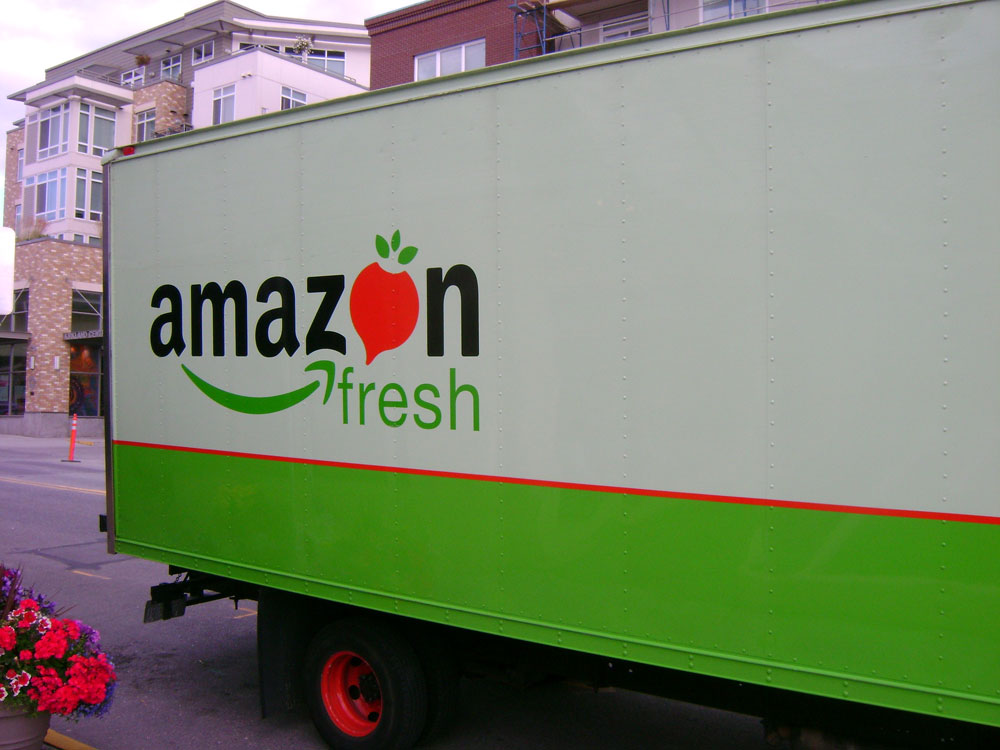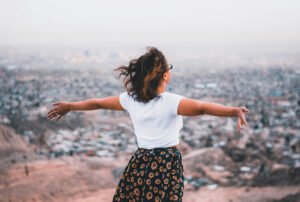
March 30, 2020; NPR
Boston Mayor Marty Walsh, former President Barack Obama, New Jersey Governor Phil Murphy, and the Chicago Bulls basketball team have all tweeted this week calling grocery store workers “heroes,” praising them for keeping Americans’ pantries stocked in this time of need. While those workers undoubtedly appreciate the praise, what they really need is more pay and protection for working in dangerous conditions—and they intend to get it.
Monday and Tuesday—March 30th and 31st—workers at Amazon, Whole Foods, and Instacart went on strike for more pay and protections during the coronavirus crisis.
The Gig Workers Collective represents the organized effort of Instacart workers, who do personal shopping for customers and deliver groceries to their homes. GWC posted their demands on Medium:
- Safety precautions at no cost to workers: PPE (at minimum hand sanitizer, disinfectant wipes/sprays and soap).
- Hazard pay: an extra $5 per order and defaulting the in-app tip amount to at least 10 percent of the order total.
- An extension and expansion of pay for workers impacted by COVID-19: anyone who has a doctor’s note for either a preexisting condition that’s a known risk factor or requiring a self-quarantine.
- The deadline to qualify for these benefits must be extended beyond April 8th.
Instacart responded by changing the customer tip default, manufacturing their own hand sanitizer for distribution among workers, and instituting other pay changes such as bonuses for in-store shoppers, accrued sick pay, and batch promotions. GWC called the response “a sick joke” and called for the strike to continue. (The pay changes are somewhat complicated, because many Instacart shoppers are classified as independent contractors, though many have argued this is inaccurate.)
Amazon workers wanted greater safety protections; specifically, they wanted warehouses where coronavirus cases had occurred to be closed for a deep cleaning, and better safety protocols and equipment; some employees were reportedly re-using face masks. According to the BBC, Amazon is also facing strikes or legal complaints in France, Italy, and Spain. Workers on Staten Island protested outside a warehouse on Monday.
Sign up for our free newsletters
Subscribe to NPQ's newsletters to have our top stories delivered directly to your inbox.
By signing up, you agree to our privacy policy and terms of use, and to receive messages from NPQ and our partners.
Rather than providing those protections, though, Amazon fired Christian Smalls, who had been a lead organizer of the walkout. New York Attorney General Letitia James said, “In New York, the right to organize is codified into law, and any retaliatory action by management related thereto is strictly prohibited. At a time when so many New Yorkers are struggling and are deeply concerned about their safety, this action was also immoral and inhumane.”
Amazon also owns Whole Foods, whose workers organized their own protest. Whole Foods CEO John Mackey made headlines last week when he reportedly emailed employees to suggest that they “donate” their paid time off to co-workers in need of more sick time.
Whole Worker, the national worker group, organized a “sick out” for Tuesday, March 31st. It is the first strike at the company since its founding in 1980. The sick-out was originally scheduled for May 1, International Workers Day, but was moved up a month due to the need for crisis response.
Workers demanded paid sick leave for workers who self-isolate, hazard pay, health coverage for part-time or seasonal workers, and other protections. One worker told Vice, “My doctor asked me to quarantine for two weeks and I haven’t been able to get paid time off. Whole Foods said we wouldn’t get it unless we got a positive test.” (Remember, most Americans still have a hard time getting tested for coronavirus, thanks to the Trump administration’s bungling in the pandemic’s early days.)
The state attorneys general of 14 states and the District of Columbia, led by Massachusetts Attorney General Maura Healey, sent a letter last week to Mackey and Amazon CEO Jeff Bezos expressing concern about Whole Foods’ and Amazon’s “inadequate” paid sick leave policies. Healey and the co-signers said the policies place “employees, their customers, and the public at large at significant risk of exposure to COVID-19.”
So far Amazon and Whole Foods have not updated their policies, but officials have responded to the strikers and the news is spreading. Instacart worker Sarah Polito told NPR, “You can tell us that we’re these household heroes and that you appreciate us. But you’re not actually, they’re not showing it.”—Erin Rubin













